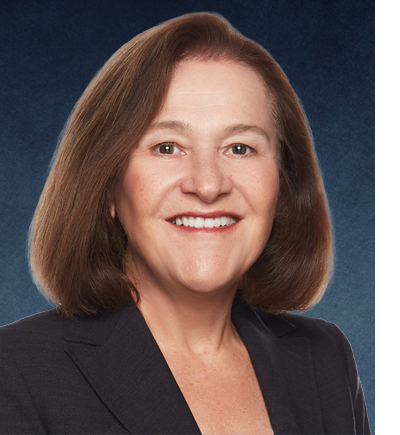|
MORE FEEDBACK
ON NEW LAWS
Water #1.  I think I peed my pants. I started laughing about your discovery of CA companion bill regarding water…it’s plausible. Right up there with reparations! –Donna G. I think I peed my pants. I started laughing about your discovery of CA companion bill regarding water…it’s plausible. Right up there with reparations! –Donna G.
Water #2. You had me laughing with this one. It reminded me of a comment a customer of mine made years ago over a health concern over toner dust from laser printers that had appeared in the press. He said "Studies have shown that 100% of all dead people were once breathing. Therefore, breathing is the main cause of death." –Bob S.
Water #3. That’s it. I am done with water. I think I will have a Bud Lite. –John G.
Water #4. Regarding water being dangerous to our health, an email on the same day as your newsletter contained a news flash from AARP that Brooke Shields suffered a seizure after drinking too much water. California is ahead of the game by banning water. –Lee M.
Water #5. Water, water everywhere but not for human consumption! Some days I think moving back to CA is the PRIMARY risk I will face! -Marilyn B.
Water #6. Rainfall in Southern California is wet one year and dry another year. Can an HOA create a "Water Reserve Account/Fund" totally separate from the Maintenance Reserve Account/Fund (and not included in the Maintenance Reserve Study)? Its purpose would be to budget a reasonably constant yearly amount of money in the account to pay average yearly bills. The surplus at the end of a wet year would be held over and used to cover water costs in a dry year. –Arthur R.
RESPONSE: It makes sense to create a separate account for a water reserve. Since associations are nonprofit corporations, there may be a problem with carrying over excess funds from year to year. Perhaps some of our CPA/tax professionals can address this issue.
Legislature #1.  "I can only conclude that the Legislature is schizophrenic." We've known this for quite some time. –Stephen J. "I can only conclude that the Legislature is schizophrenic." We've known this for quite some time. –Stephen J.
Legislature #2. You deride the Legislature for changing course on artificial turf. Yet it is appropriate to change one’s mind with new information, especially about potential harm to health and environment. And let’s not disparage changing course by calling it “schizophrenic.” That is an insensitive, erroneous use of the name of a serious mental health disorder. -Carol P.
RESPONSE: I used it lovingly to describe the mental disorder suffered by our Legislature. If I were a doctor, I would prescribe bed rest for all legislators for the next three years. It would greatly benefit their health and that of the citizens of California.
 Artificial Turf #1. Restricting artificial turf stems from the associated use of ground up tires in the turf which has been found to be a health hazard. Someone will figure out some other material less hazardous to replace the ground tires and turf will be okay again. -Marcus P. Artificial Turf #1. Restricting artificial turf stems from the associated use of ground up tires in the turf which has been found to be a health hazard. Someone will figure out some other material less hazardous to replace the ground tires and turf will be okay again. -Marcus P.
RESPONSE: As I understand it, only some turf products use recycled tires, while others do not. The long-term solution is to eliminate rubber tires on all vehicles in California. That way, they cannot be recycled into artificial turf or put into landfills. Perhaps someone could introduce a bill--I have no doubt it would pass.
Artificial Turf #2. From a climate change perspective, going with synthetic turf means loss of the potential to capture carbon in a healthy soil ecosystem. The loss of green space also contributes to the urban heat island effect. –Diane T.
RESPONSE: According to some sources, the impact of artificial turf on global warming is nonexistent. The true culprit is asphalt parking lots, driveways, and roads. Because they have a higher capacity than soil to absorb radiation from the sun, they create “the urban island effect.” This effect is responsible for the dramatic increase in our daily temperatures where there is a lot of paving. According to advocates of a healthy ecosystem, the solution is to replace all asphalt with grass parking lots, driveways, and roads. They don't radiate heat into the atmosphere or put chemicals into the ground. I see more legislation headed our way.
Term Limits #1.  Love your newsletters. I read the posting regarding the new part of AB 1764 regarding term limits. Can a board change the number of directors and/or the term limits requirements in our existing bylaws without a vote from membership? –Rafael S. Love your newsletters. I read the posting regarding the new part of AB 1764 regarding term limits. Can a board change the number of directors and/or the term limits requirements in our existing bylaws without a vote from membership? –Rafael S.
RESPONSE: Unless bylaws grant authority to boards to change the number of directors and term limits, any such change would require an amendment to the bylaws approved by the membership. If associations want to change the number of directors, it may also require an amendment to their articles of incorporation. Some articles specify the number of directors. If so, they will control over anything that might be contained in the bylaws. (See Hierarchy of Documents.)
Term Limits #2. One caveat of “term limits” is the maximum length of each term. Civil Code § 5100(a)(2) sets the maximum at 4 years per term in office. Please mention this to your subscribers! -Catherine R.
RESPONSE: Done!
 Corporate Transparency. Regarding the Corporate Transparency Act, shouldn’t the “less than” be “more than”? Or, are the big boys off the hook? -Joe W. Corporate Transparency. Regarding the Corporate Transparency Act, shouldn’t the “less than” be “more than”? Or, are the big boys off the hook? -Joe W.
RESPONSE: One would think this intrusive Act was designed for large corporations. Unfortunately, it is not. It applies to corporations; including non-profits, with less than $5 million in assets and fewer than 20 employees. The Feds think small corporations, especially homeowner associations, launder money and finance terrorist activities.
On January 1, 2024 the new reporting requirement goes into effect that will require most associations in California to file a Beneficial Ownership Information Report with the U.S. Department of Treasury’s Financial Crimes Enforcement Network. The Community Associations Institute is working to exempt associations from this regulation. Let's hope they are successful.
ROSE PEREZ JESSEN
JOINED ADAMS|STIRLING
 We are pleased to announce that attorney Rose Perez Jessen joined our Firm. We are pleased to announce that attorney Rose Perez Jessen joined our Firm.
Rose is a graduate of the University of California, Los Angeles (UCLA) School of Law. Prior to that, Rose earned a Bachelor of Arts from U.C. Santa Barbara in Social Science and Political Science, cum laude. In addition, she studied abroad at the University of Madrid, Spain.
Rose has extensive experience in general, business, and real estate transactional law, as well as handling general counsel work for corporate business and legal affairs for various entertainment and television networks, and the Federal Communications Commission.
In addition, and more importantly, Rose has served for twenty years on the boards of directors of two homeowner associations she belongs to--one in Marina del Rey and the other in Mammoth Lakes. She currently serves as President in one and Treasurer in the other.
In addition to advising association boards in the Los Angeles area, Rose will be developing our newest office in Mammoth. For more information or to request a proposal contact us.

Humor Helps. Keep up the humor, Adrian! We live in such a mess of often uninformed boards, legislators, thousands of rules, regulations, and changing laws! Adrian, your humor helps. It doesn’t “cure” the problems, but it helps! -Elaine J.
Informative. Always informative. Thank you for developing and sending these. -Bruce C.
Entertaining. Your newsletters are not only informative but very funny! You make the laws from boring and complicated to entertaining! Thank you for all the time that you put into writing the articles and publishing your newsletter. –Lorna L.
Helpful. I am the new president of an association. The information you provide has been extremely helpful. –Pamela R.
Nick Meerson. You are lucky to have Nick Meerson join your team. He was my opposing counsel a few years back. -Rae L.
RESPONSE: Nick was a wonderful addition to the Firm. As a litigator, he is careful, diligent, professional, and effective. As a person, he is easy to work with, steady, and has a quick smile. Everyone loves working with him.

|